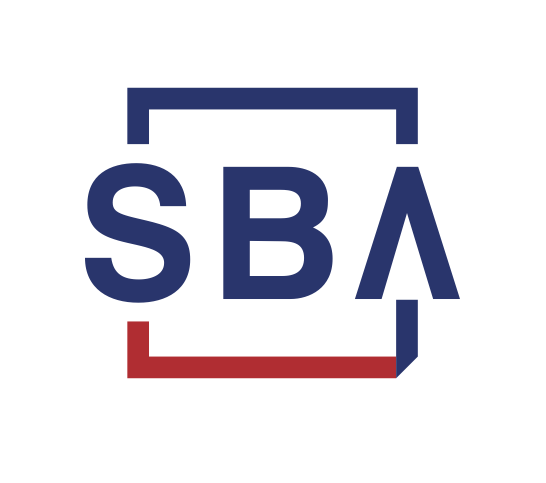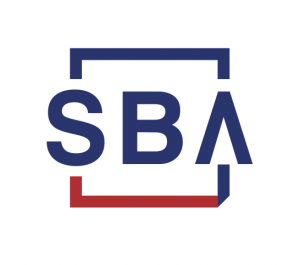 Washington, D.C. – U.S. News & World Report and Best Lawyers, for the 11th consecutive year, collaboratively announce the release of the “Best Law Firms” rankings. The Kim & Lahey Law Firm has been recognized for this honor three times since it was founded in 2018.
Washington, D.C. – U.S. News & World Report and Best Lawyers, for the 11th consecutive year, collaboratively announce the release of the “Best Law Firms” rankings. The Kim & Lahey Law Firm has been recognized for this honor three times since it was founded in 2018.

Contingency Planning and Disruptions: Preparing for a Typhoon
At the recent NEXT Upstate’s Founders Forum, our firm’s founder Attorney Doug Kim spoke to business owners about contingency planning and the crucial steps they should take to prepare for disruptions. He speaks from personal experience. In May 2023, during a diving expedition to Truk Lagoon Micronesia, unexpected challenges unfolded, leading to an extended stay due to flight delays caused by Typhoon Mawar.
Before the one-in-a-lifetime journey began, Doug and the rest of the firm prepared meticulously, including informing clients, designating a point of contact, and addressing administrative tasks. Despite facing unexpected delays and limited communication options during the trip that Mother Nature extended by two weeks, the firm’s established policies and procedures allowed for effective management of the disruption. We didn’t miss a beat!
The resilience of our firm’s operations, enabled by our SaaS tech stack, cloud storage, and VPN, allowed for continuous communication and work progress. The ability to triage and prioritize tasks ensured that essential work continued, even in the face of uncertainties. The experience highlighted the importance of having contingency plans in place, especially when unforeseen circumstances lead to an unexpectedly prolonged absence.
While the incident tested the firm’s resilience, it also provided valuable insights into the effectiveness of remote work capabilities. It underscores the need for businesses to not only anticipate disruptions but also to implement robust contingency plans that encompass various scenarios, ensuring continued functionality and adaptability in the face of the unexpected.
Key Takeaways:
Complete a Comprehensive Business Analysis Impact Report:
Doug emphasized the importance of conducting a thorough business analysis impact report. Scrutinize all business functions, applications, and services to identify vulnerabilities and potential areas of risk. By understanding how disruptions might impact different facets of the business, owners can proactively implement measures to mitigate risks.
Protect the Essentials for Revenue Generation:
Protecting what’s vital to revenue is paramount. Doug advised business owners to identify and secure the critical components that drive revenue. This includes safeguarding key assets, client relationships, and proprietary technologies. By prioritizing these elements, businesses can enhance their resilience against disruptions that may threaten their financial stability.
Cross-Train Teams and Establish Succession Plans:
Cross-training teams is a strategic move to ensure that no single person holds exclusive knowledge or skills critical to business operations. For solopreneurs, Doug recommended finding a trusted friend who can serve as a backup and hold a spare set of keys to the castle. This not only mitigates risks associated with personnel dependencies but also ensures a smoother transition in case of unforeseen circumstances.
Develop a Comprehensive Communications Plan:
Effective communication is key during times of disruption. Doug suggested creating both internal and external communications plans. Internally, it’s crucial to designate a person in charge and establish clear communication channels. Externally, keeping clients and vendors informed is essential for maintaining trust. Additionally, evaluating the need for public relations (PR) during crises ensures that the business’s image is carefully managed.
Data Recovery Strategies:
Doug outlined a robust data recovery strategy involving the maintenance of three copies, two backups, and one offsite storage. This ensures data redundancy and protection against data loss. Incorporating third-party solutions that are geographically untethered adds an extra layer of security.
Measures to Safeguard Property and Funds:
To protect property and funds, Doug recommended internal agreements such as employment and independent contractor agreements. Safeguarding intellectual capital (IP), having duplicate vendors, and establishing an incident response team, both internally and externally, further fortify the business against unforeseen events.
Insurance and Contract Clauses:
The importance of insurance in contingency planning cannot be overstated. Doug suggested considering insurance coverage tailored to the specific risks faced by the business. Additionally, including contract clauses that outline provisions for emergency use of electronic data processing equipment helps manage expectations in case of equipment failures.
By incorporating contingency planning strategies, entrepreneurs can build resilient businesses capable of withstanding disruptions and adapting to changing circumstances. As Judson L Moore aptly stated, “A bad plan is better than no plan,” emphasizing the significance of flexibility in adapting and refining strategies as circumstances evolve.
- Check out local news coverage of “Stuck in Truk”
- Learn more about NEXT Upstate’s Founders Forum series.

Kim, Lahey & Killough 2023 SC Super Lawyers
 Kim, Lahey & Killough attorneys listed in
Kim, Lahey & Killough attorneys listed in
2023 South Carolina Super Lawyers
Kim, Lahey & Killough attorneys Doug Kim, Seann Lahey, and B.C. Killough have been named in the 2023 South Carolina Super Lawyers list as top-rated intellectual property attorneys and Casey Martens has been named in the 2023 South Carolina Rising Stars list as a top-rated employment and labor attorney in the Greenville and Charleston markets.
Each year, no more than five percent of the lawyers in the state are selected by the research team at Super Lawyers to receive the honor of inclusion on the Super Lawyers list and no more than 2.5 percent of the lawyers in the state are selected to be listed as Rising Stars.
Greenville patent attorney Doug Kim, founder of Kim, Lahey & Killough, has been included in the South Carolina Super Lawyers list annually since 2017. Kim concentrates his law practice in the areas of brand protection, invention protection, licensing, contracts, company formation, Internet and domain name, data security and privacy, patents, trademarks, copyright, technology transfer, IP litigation, trade secrets, Internet & domain name pursuits, business disputes & resolutions. In addition to Super Lawyers, Doug Kim has previously been named the to the Greenville, SC Best Lawyers® list, named the Trademark Lawyer of The Year, the Best Lawyers® Patent Lawyer of The Year, an IP Star by Managing Intellectual Property magazine and a Legal Elite of the Upstate by Greenville Business Magazine.
 Charleston patent attorney B.C. Killough adds his ninth year as a named attorney to the South Carolina Super Lawyers list in the area of intellectual property law. Killough’s practice areas include brand protection, invention protection, licensing, contracts, company formation, Internet and domain name, data security and privacy, patents, trademarks, copyright, technology transfer, IP litigation, trade secrets, Internet & domain name pursuits, business disputes & resolutions, commercial transactions, and mediations of intellectual property and commercial disputes. Killough has been honored as a Senior Fellow by the Litigation Counsel of America, holds an AV preeminent rating with Martindale-Hubbell, was previously named the Best Lawyers Corporate Lawyer of the Year for the Charleston market and has been recognized by Charleston Business Magazine as a Legal Elite in the area of Intellectual Property and Innovation.
Charleston patent attorney B.C. Killough adds his ninth year as a named attorney to the South Carolina Super Lawyers list in the area of intellectual property law. Killough’s practice areas include brand protection, invention protection, licensing, contracts, company formation, Internet and domain name, data security and privacy, patents, trademarks, copyright, technology transfer, IP litigation, trade secrets, Internet & domain name pursuits, business disputes & resolutions, commercial transactions, and mediations of intellectual property and commercial disputes. Killough has been honored as a Senior Fellow by the Litigation Counsel of America, holds an AV preeminent rating with Martindale-Hubbell, was previously named the Best Lawyers Corporate Lawyer of the Year for the Charleston market and has been recognized by Charleston Business Magazine as a Legal Elite in the area of Intellectual Property and Innovation.
 Greenville patent attorney Seann Lahey joins colleagues Doug Kim and B.C. Killough on the Super Lawyers list for their work in intellectual property matters. Seann Lahey’s intellectual property law practice regularly includes work in trademarks, copyrights, trade secrets licensing matters, and he has extensive experience dealing with international and U.S. patent prosecution. He has also been recognized by Greenville Business Magazine as a Legal Elite of the Upstate for his work in intellectual property law.
Greenville patent attorney Seann Lahey joins colleagues Doug Kim and B.C. Killough on the Super Lawyers list for their work in intellectual property matters. Seann Lahey’s intellectual property law practice regularly includes work in trademarks, copyrights, trade secrets licensing matters, and he has extensive experience dealing with international and U.S. patent prosecution. He has also been recognized by Greenville Business Magazine as a Legal Elite of the Upstate for his work in intellectual property law.
 Super Lawyers South Carolina Rising Star Casey Martens practices employment and business law in both the Greenville SC and Brevard NC offices of Kim, Lahey & Killough. Her law practice focuses in the areas of business disputes and litigation, state and federal employment law, corporate formation, drafting and enforcement of contracts, business disputes involving interference with client relations, individual and business defamation, collections, and enforcement of non-compete agreements. She has also been previously recognized by Greenville Business Magazine as a Legal Elite of the Upstate.
Super Lawyers South Carolina Rising Star Casey Martens practices employment and business law in both the Greenville SC and Brevard NC offices of Kim, Lahey & Killough. Her law practice focuses in the areas of business disputes and litigation, state and federal employment law, corporate formation, drafting and enforcement of contracts, business disputes involving interference with client relations, individual and business defamation, collections, and enforcement of non-compete agreements. She has also been previously recognized by Greenville Business Magazine as a Legal Elite of the Upstate.
About Super Lawyers
Super Lawyers, part of Thomson Reuters, is a rating service of outstanding lawyers from more than 70 practice areas who have attained a high degree of peer recognition and professional achievement. The annual selections are made using a patented multiphase process that includes a statewide survey of lawyers, an independent research evaluation of candidates and peer reviews by practice area.
About Kim, Lahey & Killough
With offices in Greenville and Charleston, SC and Brevard, NC, the Kim, Lahey & Killough Law Firm is devoted to helping clients establish, enforce, and leverage their intellectual property rights from the Upstate, to the Lowcountry to across the globe.


Hunter Freeman joins Kim, Lahey & Killough
 Patent Attorney Hunter Freeman joins longtime colleagues at
Patent Attorney Hunter Freeman joins longtime colleagues at
Kim, Lahey & Killough
Kim, Lahey & Killough Law Firm is pleased to announce the addition of patent attorney Hunter Freeman to the firm’s Greenville, SC, office. Freeman’s law practice focuses primarily in the areas of patents, trademarks, trade secrets, contracts, licensing, copyrights, litigation and mediation.
Previously, Freeman worked with firm co-founders Doug Kim and Seann Lahey for 15 years at a large South Carolina firm. Since those early years, each has grown in knowledge, experience and emphasis on the intellectual property needs of South Carolina. Additionally, the number of tech companies in the state has grown by more than 250% during those years, and the need for legal strategies that empower businesses of all sizes to succeed has increased accordingly. “I am excited for the future as we work together to address the growing number of tech innovations born out of South Carolina,” commented Freeman. “I am eager to work alongside my friends again, and with the rest of the firm, to build, expand, develop, and advance the future of business in South Carolina and beyond.”
Freeman has experience in a myriad of industries to include medical devices, manufacturing, aerospace, software and tech, marketing, food beverage and hospitality, consumer products, startups and entrepreneurs, among others.
“As our clients’ needs continue to grow and evolve, we understand the importance of having another trusted colleague in our firm who can navigate the complex world of intellectual property protection and enforcement. With the addition of Hunter Freeman we now have five IP attorneys and are well suited to handle the growing needs of businesses and corporations across South and North Carolina,” observed Doug Kim. “And for those seeking to avoid litigation, we now have two intellectual property mediators in Hunter Freeman and Bill Killough.”
Freeman shares the client-centric philosophy of Kim, Lahey & Killough and enjoys sharing his knowledge to help strengthen and support South Carolina’s entrepreneur ecosystems. He routinely speaks at entrepreneurial workshops and his articles have been published in IP WatchDog, Intellectual Property & Technology Law Journal, South Carolina Lawyers Weekly, and UpState Business Journal. Hunter Freeman has been recognized for his work by his peers and the business community as he is listed in The Best Lawyers in America®, South Carolina Super Lawyers, and in Greenville Business Magazine, as a Legal Elite of the Upstate.
Freeman earned a Bachelor of Science in physics at Rhodes College, and his Juris Doctor from the University of South Carolina School of Law. He is admitted to practice before all state and federal courts within South Carolina Courts, as well as the United States Court of Appeals for the Fourth Circuit, and the United States Patent and Trademark Office.
With offices in Greenville and Charleston, SC, and Brevard, NC, the Kim, Lahey & Killough Law Firm is devoted to helping clients establish, enforce and leverage their intellectual property rights from the Upstate to the Lowcountry and across the globe.

Kim & Lahey Attorneys Honored in 2021 Legal Elite

The Kim & Lahey Law Firm is proud to announce that our attorneys are being honored by Greenville Business Magazine as part of South Carolina’s 2021 Legal Elite. This is the second year in a row that all Kim & Lahey attorneys have made the list.
Greenville Business Magazine’s Legal Elite is the only regional awards program that allows every active attorney to nominate and vote for their peers across 26 categories. The following are the Kim & Lahey attorneys selected for inclusion, as well as the practice areas in which their work is recognized:
Douglas Kim: Intellectual Property and Innovation – Business Litigation
Seann Lahey: Intellectual Property and Innovation – Business Litigation
Jason Rosen: Tax and Estate Planning – Corporate Law, Mergers, and Acquisitions
Casey Martens: Labor and Employment
Thank you to all of our peers who voted and congratulations to all of the South Carolina attorneys who are being recognized this year.

Strategies for Buying or Selling a Business During a Pandemic

Join us for the first in a series of Micro Meetings where we’ll dive deep into one topic during a 30-min Zoom, focusing on two main points to help innovative business owners reach their goals.
In light of the pandemic, some entrepreneurs who may have steered the course 5 – 10 years more are now considering passing their businesses down to family or selling them early. For those looking to buy, there are new questions about how to do your due diligence in the post-COVID era.
If you’re thinking about buying or selling a business in 2021, these are two areas where avoidable mistakes are often made:
- Licensing – Are licenses involved? Who is the license holder? How easy is it to transfer?
- Contracts / Agreements – Who owns the company? What happens if one partner wants out or dies unexpectedly? How do you handle contracts with existing employees? With vendors?
Attorney Jason Rosen will answer those questions and more. Jason helps entrepreneurs create businesses, negotiate contracts and buy and sell assets. He advises business owners how to avoid legal situations before they arise and guides individuals in preparing for their future through legacy planning.
This Zoom webinar is free and open to the public on Thursday, May 6 from 11:30am – Noon. For more information, read more and register here.

Kim & Lahey Law Firm Named to “Best Law Firms” List 2021
Firms included in the 2021 Edition of U.S. News – Best Lawyers “Best Law Firms” are recognized for professional excellence with consistently impressive ratings from clients and peers. To be eligible for a ranking, a firm must first have a lawyer recognized in The Best Lawyers in America©, which recognizes the top 5% of private practicing lawyers in the United States. Achieving a tiered ranking signals a unique combination of quality law practice and breadth of legal expertise.
Since it was first published in 1983, Best Lawyers® has become universally regarded as the definitive guide to legal excellence. Best Lawyers lists are compiled based on an exhaustive peer-review evaluation. Almost 108,000 industry leading lawyers are eligible to vote (from around the world), and they have received over 13 million evaluations on the legal abilities of other lawyers based on their specific practice areas around the world. For the 2021 Edition of The Best Lawyers in America©, 9.4 million votes were analyzed, which resulted in more than 67,000 leading lawyers being included in the new edition. Lawyers are not required or allowed to pay a fee to be listed; therefore inclusion in Best Lawyers is considered a singular honor.

Doug Kim Shares Legal Strategies for Entrepreneurs
 The pandemic has forced many changes in the business world, from closings and layoffs for some, to successful pivots for others. One surprising outcome is the surge of new startups in America, which had increased by almost 50% for the year by October.
The pandemic has forced many changes in the business world, from closings and layoffs for some, to successful pivots for others. One surprising outcome is the surge of new startups in America, which had increased by almost 50% for the year by October.
To celebrate this renaissance, i4Series is hosting a free online event as part of Global Entrepreneurship Week on November 19 from 11am – 12pm. Whether you’re a startup or looking to scale your business, join us to learn about software and legal strategies that put you on a path to success.
Doug Kim has been supporting the entrepreneurship community for more than 20 years, helping innovative businesses of all sizes thrive. Now, more than ever, during this time of rapid innovation and uncertainty, entrepreneurs need legal strategies that empower them to succeed, strategies like protecting inventions and your brand, protecting your work from being copied, and using contracts to safeguard your interests to name a few.
He is joined by fellow speaker, Zac Muma, a Business Solutions Specialist for Microsoft. Zac works with entrepreneurs to identify what they need in their software stack and helps them get set up. With so many apps available, it’s hard to know which ones you may need and how they work together. Whether you’re B2B, eCommerce or offer professional services, Zac will show you ways to streamline operations and get new clients.

Update on PPP Loan: $150 Billion Still Untapped

SBA Data Shows $150 Billion In PPP Loans Still Untapped
Reuters (5/26, Saphir, Schneider) reports that while the SBA’s PPP loan program “remains active,” data from the SBA “shows net weekly PPP lending has actually been negative since mid-May, as fewer firms applied for loans, and some borrowers returned funds.” Reuters adds, “All told, the SBA says it had approved $512.2 billion in PPP loans as of May 21. That’s nearly $150 billion less than the $660 billion allocated to the program, which was designed to keep Americans on company payrolls and off unemployment assistance.” The article adds that business owners “are now worried that confusing and changing rules may keep them from converting the money to a grant, meaning they will need to pay it back. To ensure forgiveness, for instance, firms need to spend three-quarters of the funds on payroll. But for some firms that doesn’t leave enough to cover overhead. Others don’t have enough work to justify rehiring many of their pre-crisis staff.”
Hoyer Says House And Senate Close On PPP Loan Extension
Bloomberg (5/26, Wasson, House) reports, “House Majority Leader Steny Hoyer said the House and Senate should be able to quickly agree on changes to the Small Business Administration’s popular Paycheck Protection Program to give loan recipients more flexibility in using funds. The House is poised to pass a bill on Thursday that would extend the current eight-week period during which businesses must use funds to have loans forgiven to 24 weeks or Dec. 31, whichever comes sooner. It would let businesses repay loans over five years instead of two, and scrap a rule that no more than 25% of proceeds can be spent on expenses. The House also plans to take up a bill to increase transparency in the program.” The article adds the “timing matters because the first companies that received loans after the PPP program opened on April 3 will see the eight-week loan-forgiveness periods begin to expire at the end of this week and in early June.”
CQ Roll Call (5/27, McPherson) reports, “On Thursday, the House will turn its attention to legislation tweaking the terms of the Paycheck Protection Program that Congress created as part of a roughly $2 trillion coronavirus relief package in March.” The article adds, “A bipartisan bill from Reps. Dean Phillips, D-Minn., and Chip Roy, R-Texas, would change the current eight-week period businesses have to spend the money and qualify for loan forgiveness to 24 weeks. The Senate last week reached bipartisan agreement to change the loan forgiveness period to 16 weeks but did not pass its bill before recessing.” In addition, the House will vote Thursday on a bill requiring the SBA “to publish a list of businesses that have received more than $2 million in PPP or economic injury disaster loans and other information about the loan approvals. Committees start remote hearings”
The Hill (5/26, Carney, Brufke) reports, “In addition to changing the period of time for businesses to spend PPP loans, the House will also take up legislation requiring the Small Business Administration to publicly publish information on recipients of PPP and emergency disaster loans.”
Download Your PPP Loan Forgiveness Application
Last week the Small Business Administration released an updated PPP Loan Forgiveness Application.
To apply for forgiveness of your Paycheck Protection Program (PPP) loan, you must complete the application as directed, and submit it to your Lender (or the Lender that is servicing your loan). Borrowers may also complete the application electronically through their Lender.
Need help? Read our article about “Making Sense of SBA Emergency Assistance Loans,” or reach out to Attorney Jason Rosen for more information: [email protected].

Doug Kim & Jason Rosen Selected to 2020 SC Super Lawyers® List
 We’re proud to announce that Doug Kim and Jason Rosen have been selected to the 2020 South Carolina Super Lawyers® list. Each year, no more than five percent of the lawyers in the state are selected by the research team at Super Lawyers® to receive this honor.
We’re proud to announce that Doug Kim and Jason Rosen have been selected to the 2020 South Carolina Super Lawyers® list. Each year, no more than five percent of the lawyers in the state are selected by the research team at Super Lawyers® to receive this honor.
Super Lawyers®, a Thomson Reuters business, is a rating service of outstanding lawyers from more than 70 practice areas who have attained a high degree of peer recognition and professional achievement.
The annual selections are made using a patented multiphase process that includes a statewide survey of lawyers, an independent research evaluation of candidates and peer reviews by practice area. The result is a credible, comprehensive and diverse listing of exceptional attorneys.
The Super Lawyers® lists are published nationwide in Super Lawyers® Magazines and in leading city and regional magazines and newspapers across the country. Super Lawyers Magazines also feature editorial profiles of attorneys who embody excellence in the practice of law. For more information about Super Lawyers®, visit SuperLawyers.com.

Kim & Lahey Law Firm Named to “Best Law Firms” List 2020
 Washington, D.C. – U.S. News & World Report and Best Lawyers, for the 10th consecutive year, collaboratively announce the release of the “Best Law Firms” rankings. This is the second time in less than two years that the Kim & Lahey Law Firm has been recognized for this honor.
Washington, D.C. – U.S. News & World Report and Best Lawyers, for the 10th consecutive year, collaboratively announce the release of the “Best Law Firms” rankings. This is the second time in less than two years that the Kim & Lahey Law Firm has been recognized for this honor.
Firms included in the 2020 Edition of U.S. News – Best Lawyers “Best Law Firms” are recognized for professional excellence with consistently impressive ratings from clients and peers. To be eligible for a ranking, a firm must first have a lawyer recognized in The Best Lawyers in America©, which recognizes the top 5% of private practicing lawyers in the United States. Achieving a tiered ranking signals a unique combination of quality law practice and breadth of legal expertise.
“Choosing the right law firm can be a vital decision,” said Tim Smart, executive editor at U.S. News & World Report. “The rankings draw on U.S. News’ 35 years of experience evaluating complex institutions to help individuals and companies alike make the best decisions.”
The 2020 rankings are based on the highest number of participating firms and client votes received on record. Almost 16,000 lawyers provided more than 1,229,000 law firm assessments, and more than 12,000 clients participated providing 107,000 evaluations.
“For the 2020 ‘Best Law Firms’ publication, the evaluation process has remained just as rigorous and discerning as it did when we first started ten years ago.” says Phil Greer, CEO of Best Lawyers. “This year we reviewed 14,931 law firms throughout the United States – across 75 national practice areas – and a total of 2,106 firms received a national law firm ranking. We are proud that the ‘Best Law Firms’ rankings continue to act as an indicator of excellence throughout the legal industry.”





